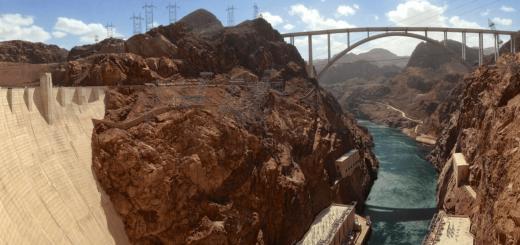Contains a presentation of the theoretical foundations, taking into account modern development trends and applied aspects of nature management. The principles of interaction between living organisms and the environment are considered: features of the interaction between society and nature: the development of ecosystems and the causes of the ecological crisis: the foundations of rational nature management: the concept of environmental monitoring, environmental regulation, legal and social issues of nature management: protected natural areas: international cooperation in the field of nature management and environmental protection.
Corresponds to GEF SPO 3+ for specialties of the enlarged group "Industrial ecology and biotechnology" in the discipline "Ecological fundamentals of nature management".
For students and teachers of educational institutions of secondary vocational education, as well as for everyone who is interested in environmental issues and the principles of rational nature management.
The educational publication deals with the main issues of ecology and environmental protection, the features of the interaction between society and nature, the principles and methods of rational nature management, state, legal and social aspects of environmental protection. Particular attention is paid to environmental regulation and forecasting the consequences of nature management, the current state of the Russian environment. Both theoretical and practical issues of environmental monitoring are presented. After each chapter there are questions and tasks for self-control.
Step 1. Choose books in the catalog and click the "Buy" button;
Step 2. Go to the "Basket" section;
Step 3. Specify the required quantity, fill in the data in the Recipient and Delivery blocks;
Step 4. Click the "Proceed to payment" button.
At the moment, it is possible to purchase printed books, electronic accesses or books as a gift to the library on the ELS website only with 100% advance payment. After payment, you will be given access to the full text of the textbook within the Digital Library or we will start preparing an order for you at the printing house.
Attention! Please do not change the payment method for orders. If you have already chosen a payment method and failed to complete the payment, you need to re-register the order and pay for it in another convenient way.
You can pay for your order using one of the following methods:
- Cashless way:
- Bank card: you must fill in all fields of the form. Some banks ask you to confirm the payment - for this, an SMS code will be sent to your phone number.
- Online banking: banks cooperating with the payment service will offer their own form to fill out. Please enter the correct data in all fields.
For example, for " class="text-primary">Sberbank Online mobile phone number and email required. For " class="text-primary">Alpha Bank you will need a login in the Alfa-Click service and email. - Electronic wallet: if you have a Yandex wallet or Qiwi Wallet, you can pay for the order through them. To do this, select the appropriate payment method and fill in the proposed fields, then the system will redirect you to the page to confirm the invoice.
Compiled in strict accordance with the requirements of the federal state standards of secondary vocational education for specialties of the enlarged group 19.00.00 "Industrial ecology and biotechnology" in the discipline "Ecological fundamentals of nature management". Contains a presentation of the theoretical foundations of this science, taking into account modern development trends and applied aspects of nature management. The principles of interaction between living organisms and the environment are considered; features of the interaction between society and nature; development of ecosystems and the causes of the ecological crisis; fundamentals of rational nature management; the concept of environmental monitoring, environmental regulation, legal and social issues of nature management; protected natural areas; international cooperation in the field of nature management and environmental protection. Corresponds to GEF SPO 3+. For students and teachers of professional educational organizations (or educational institutions of secondary vocational education), as well as for everyone who is interested in environmental issues and the principles of rational nature management.
The work belongs to the genre Educational literature. It was published in 2017 by Knorus. On our site you can download the book "Ecological Fundamentals of Nature Management" in fb2, rtf, epub, pdf, txt format or read online. Here, before reading, you can also refer to the reviews of readers who are already familiar with the book, and find out their opinion. In the online store of our partner you can buy and read the book in paper form.
Ecological bases of nature management. Konstantinov V.M.
15th ed. - M.: 2014. - 240 p.
The textbook considers the current state of natural resources and the environment, gives the theoretical foundations of rational nature management, the foundations of environmental legislation, highlights the issues of nature protection in Russia and international cooperation in this area, shows the role of environmental education in rational nature management. For students of institutions of secondary vocational education. It can be useful for teachers of schools, lyceums, colleges.
Format: pdf
The size: 9.2 MB
Watch, download: drive.google
TABLE OF CONTENTS
Preface 3
Introduction 5
The biosphere as an environment for human life and activity 7
Anthropogenic impacts on nature at different stages of the development of human society 12
Environmental crises and environmental disasters 18
Terminology issues 23
Natural resources and their classification 27
Nature protection in nature management 29
Security questions 33
Chapter 1. Brief outline of the history of nature conservation 35
Early stages of conservation 35
History of nature conservation in Russia 37
Modern stage of nature conservation 45
Security questions 47
Chapter 2. Use and protection of the atmosphere 48
The structure and gas composition of the atmosphere 48
Balance of gases in the atmosphere 51
The impact of human activities on the gas composition of the atmosphere 52
Air pollution 53
Consequences of pollution and violation of the gas balance of the atmosphere 62
Measures to prevent pollution and protect atmospheric air 67
Legal basis for the protection of the atmosphere 69
Monitoring the quality and degree of air pollution 71
Security questions 72
Chapter 3. Rational use and protection of water resources 73
Natural water and its distribution 73
The water cycle in nature 76
The role of water in nature and economic activities of people 78
Depletion and pollution of water resources 80
Main pollutants and sources of pollution 83
Determining the degree of water pollution 85
Rational use of water resources, measures to prevent their depletion and pollution 8B
Wastewater treatment plants and circulating water supply systems 92
Legal framework for the protection of water resources 93
Monitoring of water resources, water quality and pollution 95
Security questions 96
Chapter 4. Use and protection of subsoil 97
Bosom. Minerals and their distribution 97
Distribution and reserves of mineral raw materials in the world and in Russia 100
Human use of the subsoil 101
Exhaustibility of mineral resources 103
The main directions of rational use and protection of subsoil 104
Protection of natural complexes in the development of mineral resources 107
Legal basis for the rational use and protection of subsoil 111
State monitoring of the state of subsoil 113
Security questions 114
Chapter 5. Use and protection of land resources 115
Land resources. Soil, its composition and structure 115
The role of soil in the cycle of substances in nature.
Economic importance of soils 119
Natural and accelerated soil erosion. Types of accelerated erosion 122
System of measures to protect land from erosion 130
Results of anthropogenic impact on soils and soil protection measures 131
Legal basis for soil protection 136
Security questions 138
Chapter 6. Rational use and protection of vegetation 140
The role of plants in nature and human life 140
Forest as the most important plant resource of the planet 142
Anthropogenic impact on the planet's forest resources and its consequences 144
Forest resources of Russia 146
Recreational value of forests 148
Rational use, reproduction and protection of forests in Russia 149
Protection of vegetation of meadows and pastures 156
Use and protection of economically valuable and rare plant species 157
Legal basis for the protection of vegetation 158
Security questions 159
Chapter 7. Use and protection of wildlife 161
The role of animals in the circulation of substances in nature and in human life 161
Human impact on animals 163
Causes of animal extinction 166
Protection of rare and endangered species 172
Protection of the most important groups of animals 178
Legal basis for the protection of wildlife 187
Security questions 189
Chapter 8 Landscape Protection 190
Definition of landscapes. Their classification 190
Specially protected natural areas 191
Recreational areas and their protection 197
Anthropogenic forms of landscapes, their protection 198
Legal framework for landscape protection 202
Security questions 202
Chapter 9. Organization of rational nature management and nature protection in Russia 204
State policy and management in the field of ecology 204
Legislative and legal regulation of nature management 206
Security questions 208
Chapter 10. International cooperation in the field of rational use of natural resources and nature protection 209
A Brief History of the International Environmental Movement 209
Environmental conventions and interstate agreements 212
The role of international organizations in nature protection 215
Security questions 217
Chapter 11. Ecological and environmental education 219
Education for sustainable development 219
Legal basis for environmental education in Russia 222
Ecological education at school 223
Work of pupils and students of educational institutions in reserves and national parks 22B
Ecological and environmental education in institutions of secondary vocational education 22B
Security questions 230
Conclusion 231
Literature 233
INTRODUCTION
CHAPTER 1. PRINCIPLES OF INTERACTION OF LIVING ORGANISMS AND THE ENVIRONMENT
1.1. Habitat. environmental factors
1.2. Ways of adaptation of organisms to environmental conditions
Questions and tasks for self-control
1.3. Aquatic habitat properties
Questions and tasks for self-control
1.4. Ground-Air Habitat
Questions and tasks for self-control
1.5. Soil as habitat
Questions and tasks for self-control
1.6. Biosphere
Questions and tasks for self-control
1.7. Ecosystems: types and components
Questions and tasks for self-control
1.8. Cycle of substances in ecosystems. Interaction of species in ecosystems
Questions and tasks for self-control
1.9. Interaction of species in ecosystems
Questions and tasks for self-control
CHAPTER 2. FEATURES OF INTERACTION OF SOCIETY AND NATURE
2.1. Laws of interaction between society and nature.
Questions and tasks for self-control
2.2. Main sources of technogenic impact on the environment. pollution
Questions and tasks for self-control
2.3. The main groups of waste, their sources and scale of generation
Questions and tasks for self-control
2.4. Physical pollution of the environment.
Questions and tasks for self-control
2.5. Chemical pollution of the environment
Questions and tasks for self-control
2.6. Biological pollution of the environment.
Questions and tasks for self-control
CHAPTER 3. DEVELOPMENT OF ECOSYSTEMS. ENVIRONMENTAL CRISIS
3.1. Ecosystem sustainability principles
Questions and tasks for self-control
3.2. Anthropogenic impacts on the hydrosphere
Questions and tasks for self-control
3.3. Anthropogenic impacts on the atmosphere
Questions and tasks for self-control
3.4. Anthropogenic impacts on the lithosphere.
Questions and tasks for self-control
3.5. Anthropogenic impacts on biotic communities
Questions and tasks for self-control
3.6. Possible causes of the ecological crisis. Global environmental problems of the planet.
Questions and tasks for self-control
CHAPTER 4. PRINCIPLES AND METHODS OF RATIONAL NATURE MANAGEMENT
4.1. The concept, types and forms of nature management
4.2. Basic provisions of rational nature management
Questions and tasks for self-control
4.3. Environmental regulation methods
Questions and tasks for self-control
4.4. Nature protection measures. The role of technological progress in protecting the environment
Questions and tasks for self-control
4.5. Principles of location of industries of various types.
Questions and tasks for self-control
4.6. Waste-free technologies and use of alternative energy sources
Questions and tasks for self-control
4.7. Natural resource potential of the Russian Federation.
Questions and tasks for self-control
4.8. Protection of flora and fauna.
Questions and tasks for self-control
CHAPTER 5. ENVIRONMENTAL QUALITY AND ITS REGULATION
5.1. The concept and principles of environmental monitoring.
Questions and tasks for self-control
5.2. Environmental safety regulations
Questions and tasks for self-control
CHAPTER 6. LEGAL AND SOCIAL ISSUES OF NATURE MANAGEMENT AND ENVIRONMENTAL SAFETY
6.1. Environmental legislation of the Russian Federation
Questions and tasks for self-control
6.2. State bodies of environmental protection. International cooperation in the field of nature management and environmental protection
BIBLIOGRAPHY.
GLOSSARY OF TERMS AND DEFINITIONS
Compiled in strict accordance with the requirements of the federal state standards of secondary vocational education for specialties of the enlarged group 19.00.00 "Industrial ecology and biotechnology" in the discipline "Ecological fundamentals of nature management". Contains a presentation of the theoretical foundations of this science, taking into account modern development trends and applied aspects of nature management. The principles of interaction between living organisms and the environment are considered; features of the interaction between society and nature; development of ecosystems and the causes of the ecological crisis; fundamentals of rational nature management; the concept of environmental monitoring, environmental regulation, legal and social issues of nature management; protected natural areas; international cooperation in the field of nature management and environmental protection. Corresponds to GEF SPO 3+. For students and teachers of professional educational organizations (or educational institutions of secondary vocational education), as well as for everyone who is interested in environmental issues and the principles of rational nature management.










